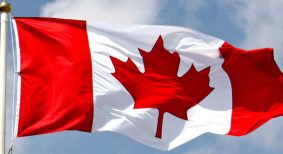The BC Chamber of Commerce (BCCC) has publicly released its Economic Recovery Submission (submitted to Government July 21st, 2020), made up of 54 policy recommendations focusing on competitiveness, innovation, and inclusivity respectively.
The plan is a pan-provincial in scope and aims to guide the province on stimulating B.C.’s economy through measures that support small and medium enterprises (SMEs).
“We’ve been tracking the economic impact of COVID-19 on B.C. businesses since early March. Our recommendations are based on what we’ve heard at the community level—from our network of 36,000 businesses of all sizes and from all sectors across BC,” says Dan Baxter, director of policy development and government & stakeholder relations at the BC Chamber of Commerce.
“We have to aim beyond returning B.C. to the uncompetitive business conditions that existed before COVID-19,” says Baxter. “This strategy encourages entrepreneurship and investment to undo the damage inflicted by the pandemic, and also create a more competitive, resilient, and prosperous future.”
Creating a competitive tax environment to support business growth is key to the submission.—the BC Chamber Network is asking the Province to embrace a made-in-BC value-added tax and to mitigate the impacts of the Employers’ Health Tax.
Other recommendations of note include:
- municipal property tax reform to eradicate the highest and best use designation for property tax;
- expanding CleanBC benefits for SMEs so they can adopt lower-carbon technologies faster to boost productivity;
- investments in rural and remote communities such as broadband infrastructure;
- funding models that allow rural residents to redirect their investments into local economies;
- providing businesses with grants and incentives at a time when cash reserves are low;
- removing PST on machinery and equipment to help small businesses recover and grow.
“Recovery will be a long, multi-year process,” says Baxter. “Our submission isn’t limiting government to its $1.5 billion dollars allocated to support economic recovery. We need to roadmap for growth and prosperity over the long term too.”









